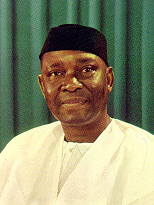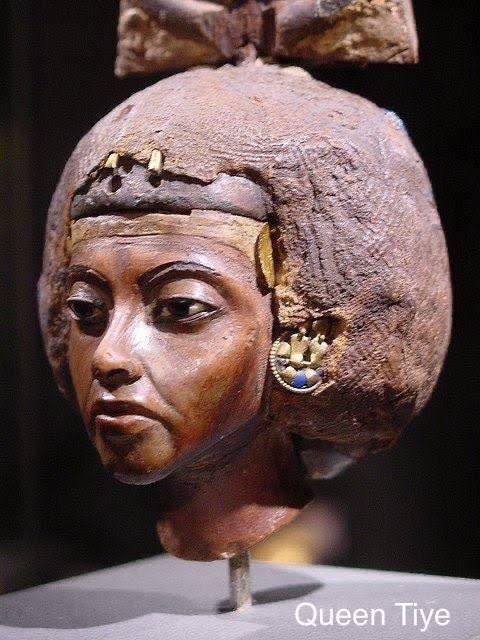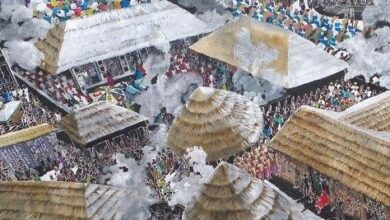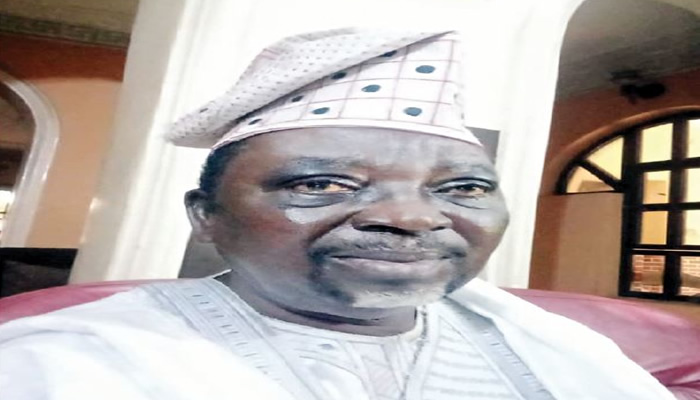The Dogged EKITI Spirit
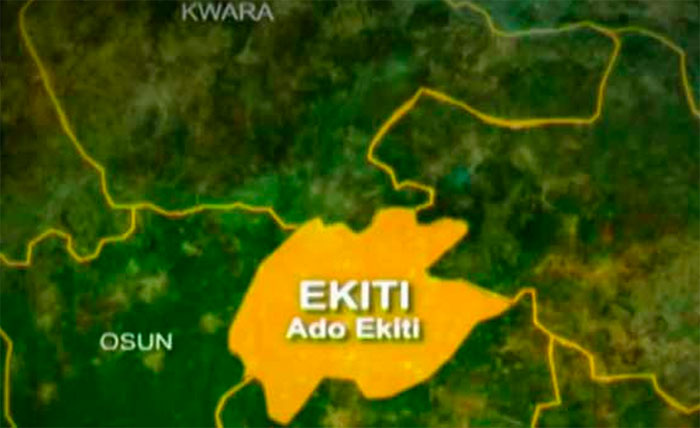
By Oluwole Osagie Jacobs
You may be wondering what is the Ekiti spirit or the issue I want to address. Well, this piece will be difficult in terms of thematic profiling. It is a flow of words which in literature can be likened to stream of consciousness, a genre perfectly exemplified by the Irish writer, James Joyce. They are random thoughts from which lessons could be learnt. I will digress to extraneous matters to spice the piece and reduce boredom.
Ekiti spirit is a kinetic force, a pulsating force of the mind that controls human actions. I heard of this phrase first in 1970. At the time, I was a junior student in a secondary school in Akoko, Ondo State. One Ekiti boy, Amos Odenusi alias Shakila, a gifted sprinter and student of Victory College, Ikare, vowed that he would be the fastest secondary student in Nigeria. He made this declaration in January, 1970 when he was in the Upper Sixth form. Fortunately, Victory College hosted the AIONIAN games in that year. It is a competition among top Anglican schools in Western Nigeria. Ijebu – Ode Grammar School, Ibadan Grammar School, Ilesa Grammar School, Ondo Boys High School, Imade College, Owo, Oduduwa College, Ile – Ife, Abeokuta Grammar School, Gbongan Ode – Omu Grammar School etc came with “terrible” sprinters. The 100 meters dash was a third World War not recorded in history. On your mark – set – go! Before ..…..”who art in heaven”, Amos Odenusi had breasted the tape. Victory College students rented the air with “Shakila! Up VCI!” Though not a VCI student, I was on the field on that day. I remember it as if it was yesterday. We only saw Shakila in the air conquering space. Only the very clear sighted saw his legs touch the ground. He gallops like a horse. Oh! that guy was fleet footed Few months later, he was invited to the national camp preparatory for the 1970 Commonwealth Games in Edinburg, Scotland. Amos Odenusi represented Nigeria in the sprints.
My principal, Chief E. O. Olugboja, a Deputy Speaker in the West in the Akintola government told us the zeal in Amos Odenusi was the Ekiti spirit. Chief Olugboja was later transferred to Christ School, Ado – Ekiti as Vice – Principal in December, 1972. A listing of the Principals of Christ School will show that he headed the school for a year as Vice – Principal. He was a 1956 graduate in Economics of the University of Exeter, United Kingdom. He was later transferred to Victory College, Ikare as Principal.
The Ekiti spirit transcends ethnic boundaries. Therefore, the Ekiti spirit is not synonymous with only the Ekiti. That spirit is significantly evident in the Ijesha and some folks from other tribes. The Ekiti spirit is objective, truthful, undiplomatic and fearless. It is a prized possession that should be well managed if not it can lead to poor goal attainment. Chief Obafemi Awolowo didn’t achieve his aim of ruling this country because of the Ekiti spirit. He told the truth even in times truth was not a virtue. In this wise he was unrestrained. At Ilorin in 1979, he told the people to embrace western education with their two hands. He went further to assert that Islamic education would not give their children opportunity to work in banks. Ilorin people understood it as denigration of their religion.
There are some truths that will hurt the uninformed. The Ekiti spirit is not cunny, it is without guile. It is cunningness that made Asiwaju Tinubu President. He made himself a delicious meal the North could not reject. Prior to the election he rejected restructuring that was dear to his heart. He protested against fuel subsidy removal and VAT increase. He dusted his Koran and struggled to learn the fatiha. I don’t know who told them Tinubu was a Muslim. A Lagos bobo? He will go to the Mosque, the Church and consult the Oracle anyday. It is like me that my Pastor is not aware that there are fifteen shrines in my family house in Benin. They have been there for more than 700 years. Accessing God through our shrines is our primary religion.What we practice is sincretism. Now, AsiwajuTinubu is revealing his true self (O ti njeri ara e). Those who put him in power on account of religion have realized they took a dangerous gamble.
Ekiti spirit is not beholden to cunningness. It is the Ekiti spirit that made Adekunle Fajuyi to die with his Commander in Chief, Aguiyi Ironsi. He was a rare specie among humans.
One of the drawbacks of the Ekiti spirit is that it can stall progress due to a lack of consensus. Cast your mind back to the Ondo State House of Assembly between 1979 and 1983. At the time, Ekiti was part of Ondo State. Many Ekiti dons who had retired from the University headed straight to that Assembly. There was no private University in Ondo State at the time. I went to Akure with a friend, Falodun, whose father was a Commissioner under Chief Ajasin. I now decided to watch a session of the House of Assembly. It was a fruitless adventure. I regretted not going with a dictionary. The cross fire of high sounding words gave me headache. It was an intellectual war. They did not agree on anything. It was Oyinbo rau. Later the house became polarized between the Ekiti and non Ekiti. The bitter war between Chief Omoboriowo and Chief Ajasin now followed and the rest is history.
This piece is inspired by the resolve of the intellectuals on this Ekiti forum to work towards the growth and development of Ekiti. It is the restless Ekiti spirit that is at work. I am highly impressed. There is no virtue in having a people with one of the highest intellectual stock in Africa and their society is bereft of basic infrastructure to enhance growth. It is this sense of community that can project a people forward.
We must thank the minds behind the founding of Ekiti Parapo College, Ido – Ekiti in 1954. It must be noted that there was Emmanuel Primary School in Ado – Ekiti in 1894. It took 60 years after that to have a secondary school wholly built by Ekiti people. That school came after Christ School founded in 1933. The year this school started as a secondary school is unclear to me. From my search I have assumed 1936. Akoko, now covering four local governments in Ondo State did not have a primary school until 1921. This is 27 years after Ado – Ekiti and 26 years after Owo had their first primary school. The way God sent Archdeacon Dallimore and Mr. Mason to Ekiti the same way he sent Archdeacon Augustus Lackland Lennon to Akoko. He was a tall black Jamaican Anglican missionary. He established the first primary school, St. Stephens Primary School, in Ikare in 1921.
It should be noted that Ondo had produced a graduate in Rev. Cannon Moses Craig Adeyemi (1882 – 1943) in 1911. Adeyemi College of Education was named after him. Ibadan had a graduate in Bishop Alexander Akinyele in 1912. Ogbomoso had a Mathematics graduate in Mr. Oyerinde in 1914. Ilaje had a medical doctor in Dr. Samuel Manuwa in 1926. Dr. Manuwa’s village, Itebu – Manuwa had a primary school in 1875. This Ilaje village was ceded to Ogun State from Ondo State during a recent boundary adjustment as a result of the creation of states.
In the whole of Yoruba land Akoko was the last community to have a primary school. I know this as a fact. Please don’t argue. I am a mobile library and walking encyclopedia. Ile ifiwe pamo ti ko duro lojukan ati iwe imo ti o nrin. A griot per excellence. You can see that Akoko and even Ekiti had it late. Archdeacon Lennon established a middle school in Ikare in 1935 and Victory College in 1947. Victory College is the fourth secondary school in Ondo and Ekiti states. These schools are Ondo Boys High School, Ondo (1919), Christ School, Ado – Ekiti (1933?), Imade College, Owo (1946), Victory College, Ikare (1947). You can see the great work of Archdeacon Lennon. It is difficult to believe that Ikare had a secondary school before Akure and Osogbo. These two towns had no secondary school before 1950. Believe it. Whereas Osogbo had students in St. Andrews College, Oyo in 1911.
Archdeacon Lennon’s influence extended to Ebira land. He was the one who told the then Atta of Ebira to send his children to school immediately. He listened to this Christian missionary. The Atta’s son, Abdul Aziz Atta, once Nigeria’s Secretary to the government under Gen. Yakubu Gowon, earned a degree in Oxford in 1947. Chief Babalola of Oye Ekiti became the first Ekiti graduate in 1944. The same Ekiti produced a female science graduate in Lady Deborah Jibowu in 1947. This is wonderful. She earned it from the University of Manchester. Seye the griot on this forum should do a report on this Amazon because her achievement appears one off.
How many Ekiti females were graduates between 1950 and 1960. I am curious because the Anglican Church in the then Ondo Province which comprised of the present Ondo and Ekiti states wanted to establish a secondary school for the girl child in Arigidi Akoko in 1961 and it was difficult to get a female University graduate to head the school. At the time, the Anglican mission had just established Fiwasaye Grammar School, Akure. The mission could only harvest the female graduate among the Ondo. There mission had to wait for a whole year for the woman to return from her Diploma in Education course in London which was an additional requirement to head the school. It is important to note that it is one thing to have access to education and the other is to benefit from it. From the mid 1970s, some states were classed as educationally disadvantaged states.
At the time, Nigeria had 19 states. 10 states in the North and 9 States in the South. The educationally disadvantaged states were the 10 northern states and the 3 states of Lagos, Rivers and Cross Rivers in the south. At the time, the Cross Rivers comprised of the present Cross Rivers and Akwa Ibom states and Rivers comprised of the present Rivers and Bayelsa states. Many of us questioned the rationale for classing these southern states as educationally disadvantaged. The then Cross Rivers had Hope Waddel Secondary School, Calabar in 1895, St. Patrick’s College, Calabar in 1934, Etinan Training Institute in 1898, Methodist College, Oron in 1905. Calabar had a school for girls, Edgely Grammar School, in 1898. Duke Town Primary School was founded in 1847. Believe it. Justice Udo Udoma from Ikot Abasi had a doctorate in law in 1945. The first Nigerian to attain that feat. He said it was Efik lawyers he saw pleading cases in courts in Port – Harcourt in the early 1930s who inspired him to read law. These lawyers included, Asuquo, Ekanem Iso, Eyo Honesty, Daniel Ephraim etc. There is hardly a Rivers State riverine community without a primary school before 1900. In fact, Ernest Ikoli, an Ijaw man, was one of the foundation students of Kings College, Lagos in 1909. I will not waste time on Lagos.
By the time Akure got a secondary school in 1951 and Ekiti Parapo College was founded in 1954 many Lagos graduates had retired from public service, lived a good life and died. Why do you now class these states as educationally disadvantaged and make them enjoy more funding? Whereas Prof. Olubummo, and Ekiti from the hinterland, bagged a doctorate in Mathematics in 1955. Prof. Sam Aluko from Ode got his first degree in Economics at home. He should be feared as we feared Alfa Ode in our youth. Alfa Ode was a powerful Muslim cleric and spiritual consultant. If he told you that you would die next week start making your coffin today. O gbono bi Alfa Ode was a popular saying then.
Prof. Olubummo and Prof. Ezeilo became the first Nigerian professors of Mathematics in 1964. What of Prof. Chike Obi? Yes, he earned his first degree in Mathematics at home, Masters in Non lineal differential equations and went ahead to be the first Nigerian to earn a PhD in Mathematics. He went into politics. It was when he returned to the academia he earned his Professorship after these gentlemen.
What I am saying is that education must drive progress. If not, our case will be like that of Sierra Leone still behind in spite of early access to education. Listen, Fourra Bay College in Sierra Leone predates the University of Ibadan founded in 1948 by more than a hundred years. Believe it. You can be what you want to be.
From Ekiti not known for business emerged Chief T. Oni who had a foremost construction company as far back as the mid 1940s. How? Yes. He was an Okemesi man. They are no push overs anyday. A town that could produce the Osuntokuns. ENI TI O NI IRU OHUN KO TE RI, IGBA TI O DE OKEMESI WON PE NI EEGBON. Okemesi kin nje iru. Hahaha Consider the powerful pun with the word phrase “IRU MI”. It could mean “someone of my status”. It could also mean locust bean, that smelly condiment our mothers use to garnish their soup.
There is no time to waste. The Ekiti development strategic plan should start in earnest. Its implementation should be swift. It should touch critical areas – Agriculture, Roads, Water, Power, Mining, Education IT, Human Capital, tourism etc
As an Economist and a Chartered Accountant it seems I have crossed my boundary. I therefore pay homage to Nigerian Lords of history – Profs Onwuka Dike, Ade Ajayi, Michael Crowther, Samuel Johnson, Egharevba, Saburi Biobaku, Akinjogbin, R. A. Adeleye, Abdulahi Smith, Obaro Ikime, A. E. Afigbo, Phillip Igbafe, E. J. Alagoa, Ade Obayemi, Adetoro, Ashiwaju etc. Mo juba yin o.

